Here's a look at a few Gulf oil spill myths that The Daily Green has been watching:
1. Obama Put a Moratorium on Offshore Oil Drilling in the Gulf of Mexico
Myth. President Obama and Interior Secretary Ken Salazar announced a moratorium on new oil deepwater drilling permits, and shut down 33 exploratory deepwater wells on May 6. (A similar moratorium on new shallow water drilling lifted three weeks later. "Shallow" in this context means up to 499 feet deep.) Both orders, however, were vague and left 3,600 existing offshore oil wells active in Gulf waters. Since the spill, 17 new offshore oil drilling projects have been permitted. Even the six-month deepwater moratorium was declared unconstitutional by a federal judge June 22, leaving it void if not overturned on appeal or reinstated on different legal grounds. (Nevermind that the judge has invested in Transocean, the owner of the Deepwater Horizon rig that exploded, Halliburton, which handled the faulty cementing of the well, and about a dozen other companies involved in offshore oil drilling in the Gulf of Mexico.) And Obama has always been a supporter of offshore oil, though some of his environmentalist supporters seem to have forgotten that; he made good on a campaign promise shortly before the BP oil spill started and proposed opening additional offshore waters to oil and gas exploration - in the Gulf of Mexico, along the Atlantic coast and off Alaska. (Permits to start drilling in those new waters have been suspended temporarily.)
2. Boycotting BP Gas Stations Boycotts BP
Myth. Lady Gaga is among the leading proponents of a BP boycott, as musicians on summer tours shun the stations, along with Public Citizen and tens of thousands of Facebook fans of a boycott. But while the brand may be offensive and permanently tainted, BP disinvested in its U.S. gasoline chain in 2007, leaving independent owners invested most heavily in local stations. They pay BP a licensing fee and may (or may not) be more likely to carry BP gasoline, but the economics of wholesale oil and gas is such that BP, Britain's largest company, is unlikely to suffer much from a retail gas boycott, but BP the local station owner could. Anyway, what's the better alternative? And unfortunately, oil ends up in a lot of products other than gasoline, under a lot of different brands, making it difficult to avoid one company's product.
3. Offshore Oil Could Make the U.S. Energy Independent
Myth. The U.S. imports 57% of the oil we burn, and two-thirds of those imports come from politically unstable or hostile countries. As a nation, we spend more than $700 million a day on imported oil (the figure was more than $1 billion as recently as 2008, when oil prices were higher). There isn't enough oil offshore to offset that imbalance. An analysis by the Energy Information Administration, the most credible government voice on energy issues, predicted that new offshore oil drilling would result in a whopping 3-cent difference in the price of gas by 2030. That's not to say that renewable energy sources, like wind and solar, are ready to fill in and plug the gap either, unfortunately. If you're looking for a better path toward energy independence, conservation is the most lucrative avenue. Three pennies not spent on gas are three pennies earned (and three pennies worth of offshore oil not drilled).
4. The Deepwater Horizon Rig Was Uniquely Vulnerable to Disaster
Myth. The facts keep piling up showing negligence - or at the very least, bad decision-making - by BP, and many of those decisions and conditions may be unique to BP, which has been criticized before this for a culture that put profits far ahead of safety and environmental protection. But disaster preparedness by other oil companies drilling in the Gulf, and oversight by the government, is virtually identical. For instance, other companies' disaster response plans in the Gulf seem to include notes about protecting the walrus and other Arctic creatures that don't live in the Gulf; unfortunately they don't include plans to respond to underwater plumes of oil, failed blowout preventers or other real-world issues. And the Mineral Management Service, the agency in charge of regulating energy exploration on federal lands and in federal waters (yes, you own those) was outed repeatedly by its own inspector general of cavorting with oil companies, failing to inspect rigs, waiving requirements for environmental review and otherwise failing its public service mission in favor of its royalty-collecting mission. The MMS determined in 2009 that an environmental review of the Deepwater Horizon rig wasn't warranted because it would have "minimal or non-existent environmental effects." The story is the same with hundreds of other drilling operations in the Gulf of Mexico - including 49 projects (including two BP projects) exempted from environmental review since the Deepwater Horizon explosion. Clearly, the assumption that these rigs are safe is dead wrong.
5. The BP Oil Spill Will Lead to a Strong Senate Energy Bill
Myth. The U.S. Senate has been stalled in its efforts to pass an energy and climate bill to match the one passed months ago by the House. A linchpin in the Kerry-Lieberman bill, which would cap carbon emission and invest in clean energy sources, was the expansion of offshore oil drilling. That, along with investment in nuclear power, the shielding of the coal industry from fully owning up to its pollution and other sweeteners were built into the bill to bring Republicans and reluctant Democrats to the table. The catastrophic oil spill will make an energy bill more likely to pass, but without the offshore oil sweetener, a climate bill is not.
6. Now We Know How Much Oil Is Spilling
Myth. Just how big is the Gulf oil spill? Recently leaked internal BP documents show that engineers have estimated a worst-case spill rate of 100,000 barrels a day. That's two-thirds bigger than the worst-case estimate (60,000 barrels) of independent scientists charged by the government with estimating the spill ... which was nearly three times the worst-case estimate (25,000 barrels) released by the government in June ... which was five times the worst-case estimate (5,000 barrels) released by the government and BP in May ... which was itself five times the estimate (1,000 barrels) released by the government and BP in April. The difference between 1,000 barrels and 100,000 barrels is obvious: It's the difference from being a spill that's a fraction of the size of the Exxon Valdez spill (previously the worst spill in U.S. history, at 11 million gallons) to a spill that's many multiples of that infamous spill.
7. The Gulf of Mexico Is Most at Risk from Offshore Oil Spills
Myth. While the Gulf of Mexico holds all of U.S. offshore oil sites currently, President Obama wants to open the Arctic to offshore oil drilling for the first time. Environmental groups are trying to stop the plan, arguing that not only are ecosystems there fragile - think polar bears, seals and, yes, walruses - but a cleanup in icy waters would be even more difficult than in the Gulf of Mexico, and the icy waters themselves would inhibit the (slow, but natural) breakdown of oil. The Interior Department did halt Shell's plans to start drilling this year, but it's not a permanent ban. As for which is more vulnerable, it's a difficult call; the point is that a spill in either place has the potential to devastate entire regions.
8. There's Nothing Individuals Can Do
Myth. There's always volunteering, donating to those cleaning birds or arguing for good energy policy, or writing to Congress directly. But beyond that, there's federal law. The Clean Water Act empowers citizens to bring suits to stop water pollution and hold polluters accountable. It's hard to argue that BP's oil spill isn't polluting water, and several groups - The Center for Biological Diversity, Gulf Restoration Network, Louisiana Environmental Action Network, and Environment America - have filed suit. The potential fine is great, at $4,300 per barrel.
9. On-Shore Drilling is Safer
Myth. It's hard to compare the risks from different activities, but two forms of oil and gas extraction gaining steam on land are fraught with risk. Natural gas extraction from shale requires hydraulic fracturing (a.k.a. "fracking"), a process that injects a chemical stew at high pressure deep underground in order to force natural gas out of the rock. Groundwater becomes contaminated with toxic chemicals, threatening drinking water supplies across a wide swath of country where shale formations exist (like the Marcellus shale through New York, Pennsylvania and West Virginia). Another controversial new form of oil extraction comes from so-called "tar sands" like those in Alberta, Canada; extracting oil from tar sands involves open pit mining on a grand scale or heating the land at high temperatures to sort-of melt the oil out of the land. What each of these - deepwater drilling, fracking and tar sands mining - has in common is that they are very difficult, expensive and risky. And that they are made necessary by our appetite for oil; the cheap oil that's easy to get at is being exhausted, leading us to these highly complex, highly controversial and highly risky methods.
10. Republicans are the Politicians Most in the Pocket of Oil Companies
Myth. Republicans may scream "drill, baby, drill" louder, but when it comes to political money being spent to influence government, it's more or less a tie. Key Democrats are among the top recipients of political money from oil companies, as are Republicans. The money flows to those in oil-rich states, to high-profile candidates and those with the most power in Congress (ie, the chairs of key committees). Here's a look at the Friends of Earth tally of opensecrets.org data, showing the biggest recipients of money from BP and other oil companies since 2006:
Senate
John McCain (R-AZ) - $36,649 from BP; $2.43 million totalHouse
Mary Landrieu (D-LA) - $16,200 from BP; $329,100 total
Mark Begich (D-AK) - $8,550 from BP; $85,958 total
Lisa Murkowski (R-AK) - $8,500 from BP; 223,326 total
Mitch McConnell (R-KY) - $8,500 from BP; 408,400 total
John Culberson (R-TX) - $10,200 from BP; 187,350 total
Ron Paul (R-TX) - $7,300 from BP; 134,132 total
Charles Rangel (D-NY) - $6,500 from BP; 40,600 total
Steny Hoyer (D-MD) - $6,000 from BP; 91,800 total
Don Young (R-AK) - $5,500 from BP; $45,500 total
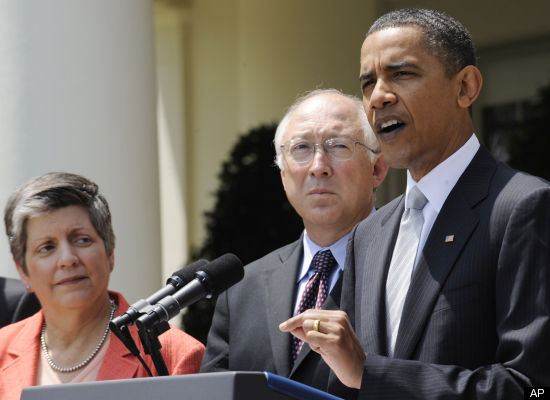
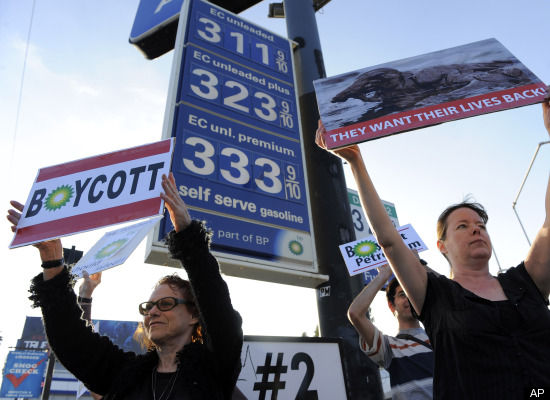
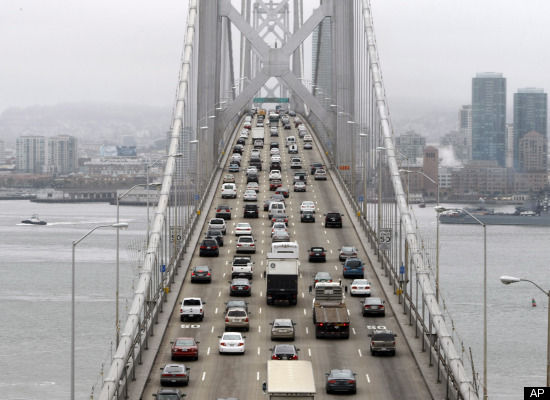
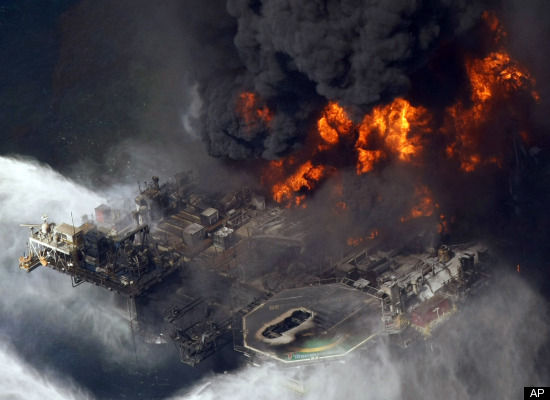
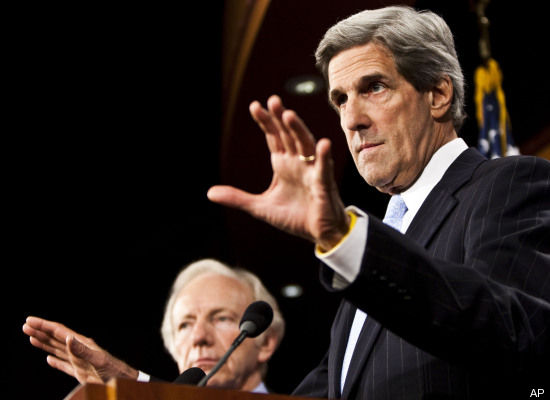
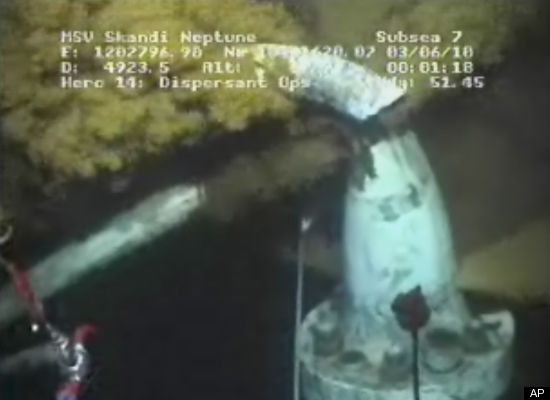
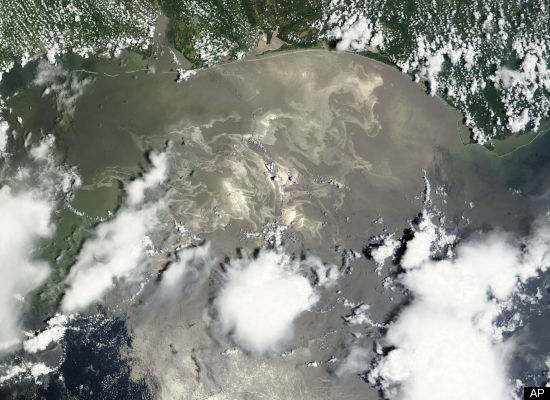
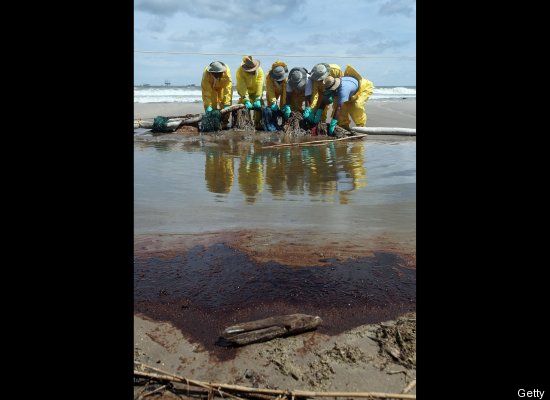
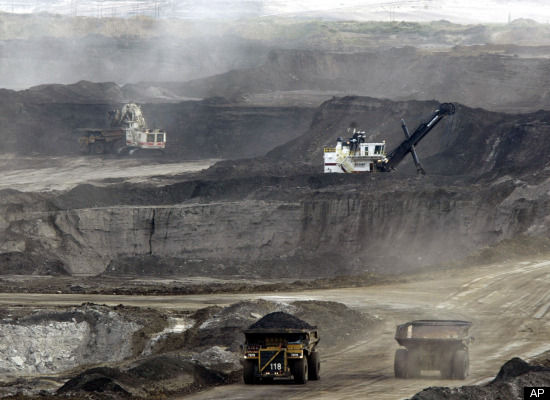
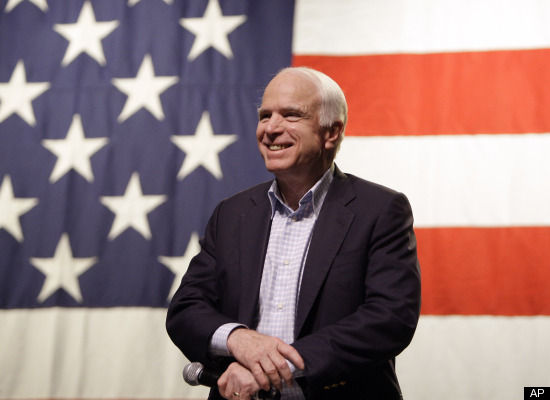



Reader Comments
to our Newsletter